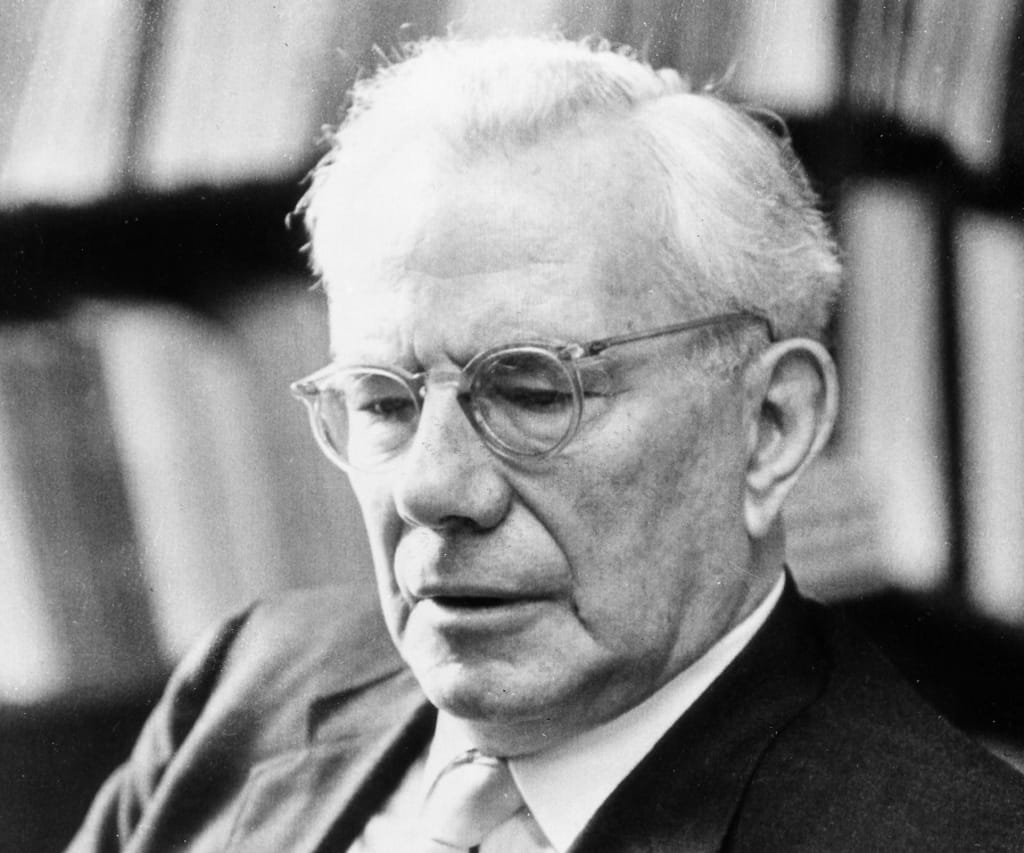Paul Tillich German-American existential philosopher
Paul Johannes Tillich was a renowned theologian and philosopher who lived a remarkable life, leaving a profound impact on the world through his intellectual contributions and spiritual insights. Born on August 20, 1886, in the small town of Starzeddel, near Berlin, Germany, Tillich grew up in a devout Lutheran family.

Paul Johannes Tillich was a prominent theologian and philosopher born on August 20, 1886, in Starzeddel, a small village in eastern Germany. He grew up in a religious family and developed a deep interest in theology from an early age. As a young man, he faced personal struggles, including the loss of his brother during World War I, which had a profound impact on his theological thinking.
Tillich pursued his education at several universities, including the University of Berlin and the University of Halle. He studied philosophy, theology, and history, becoming well-versed in both the existentialist and idealist philosophical traditions. During his studies, he encountered the works of philosophers like Immanuel Kant, Friedrich Schelling, and Friedrich Nietzsche, who greatly influenced his intellectual development.
In 1912, Tillich was ordained as a Lutheran minister and began his pastoral work. However, his desire to explore deeper theological questions led him back to academia. He served as a military chaplain during World War I, which further shaped his understanding of the human condition and the need for meaningful answers to life's existential dilemmas.
Throughout the 1920s and 1930s, Tillich gained recognition for his scholarship and was appointed as a professor at various universities in Germany. He became increasingly critical of the prevailing theological trends, particularly the liberal theology that, in his view, seemed to have lost touch with the deeper spiritual dimensions of faith. Tillich believed that a more profound understanding of religious symbols and their meanings was crucial for engaging with the challenges of modernity.
In 1933, as the Nazis rose to power, Tillich faced growing pressure due to his outspoken opposition to the regime's ideology. He recognized the dangers posed by totalitarianism and its potential to crush the human spirit. Fearing persecution, he emigrated to the United States with his wife, Hanna, and accepted a teaching position at Union Theological Seminary in New York City.
In America, Tillich's reputation as a theologian and philosopher continued to grow. He engaged in vibrant intellectual discussions with prominent thinkers like Reinhold Niebuhr and H. Richard Niebuhr, influencing and being influenced by the American theological landscape.
Tillich's most significant work, "Systematic Theology," published in three volumes between 1951 and 1963, became a cornerstone of his legacy. In this magnum opus, he sought to reconcile existential questions with Christian doctrine and philosophy. He emphasized the importance of "ultimate concern" or the idea that human beings are fundamentally oriented toward something of ultimate meaning or value, which he saw as a bridge between existentialism and theology.
Throughout his career, Tillich promoted the idea of a "theology of culture," advocating for a deeper engagement between theology and various aspects of human life, including art, science, and politics. He believed that theology should address the existential struggles of individuals and society, offering a relevant and transformative message.
Paul Tillich continued to teach, write, and lecture until his passing on October 22, 1965. His ideas had a profound impact on subsequent generations of theologians and philosophers, and his work continues to be studied and debated to this day. Tillich's pursuit of a meaningful encounter between faith and reason left an indelible mark on the intellectual and spiritual landscape of the 20th century and beyond.
From an early age, Paul showed exceptional intellectual abilities and a deep interest in religious matters. He pursued his education at various universities, studying theology and philosophy, and was profoundly influenced by the works of the German philosopher Friedrich Schelling and the existentialist Søren Kierkegaard. His studies during this time set the foundation for the unique blend of theology and philosophy that would characterize his later work.
In 1912, Tillich was ordained as a Lutheran minister and served as a chaplain in the German army during World War I. The war had a significant impact on him, and he experienced the horrors of battle firsthand. These experiences deeply affected his beliefs and understanding of spirituality, pushing him towards a more existential and philosophical approach to theology.
After the war, Tillich continued his academic pursuits and earned his doctorate in philosophy. He became a professor at the University of Dresden and later at the University of Leipzig. During this period, he began to develop his own theological ideas, seeking to bridge the gap between traditional religious beliefs and the challenges of modern thought.
In the early 1930s, with the rise of the Nazi regime in Germany, Tillich's academic freedom and personal safety were at risk due to his open opposition to Nazi ideology. In 1933, he was dismissed from his academic position, and as a result, he emigrated to the United States with his wife, Hannah, and their two children.
In America, Tillich found a new home and a platform for his ideas. He taught at several prestigious institutions, including Union Theological Seminary, Harvard University, and the University of Chicago. His teaching and writing gained significant attention, and he became a prominent figure in both theological and philosophical circles.
Tillich's most significant work, "The Courage to Be," published in 1952, explored the concept of existential anxiety and the quest for meaning and purpose in a world that seemed devoid of absolute truths. In this and other writings, he addressed the human condition, the nature of faith, and the search for ultimate concerns, connecting religious concepts with existential questions.
Throughout his life, Tillich remained committed to engaging with contemporary issues and fostering dialogue between religion, philosophy, and culture. His theology was characterized by an emphasis on the notion of "ultimate concern" as a unifying element in human existence.
Paul Tillich passed away on October 22, 1965, leaving behind a rich legacy of thought and influence on the fields of theology, philosophy, and existentialism. His ideas continue to inspire scholars, theologians, and seekers of truth, as his work encourages people to confront the existential challenges of life with the courage to explore their deepest concerns.





Comments
There are no comments for this story
Be the first to respond and start the conversation.